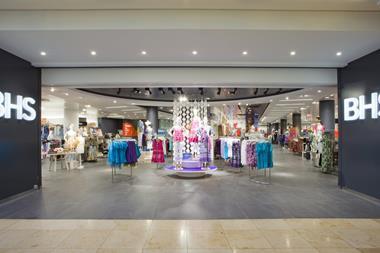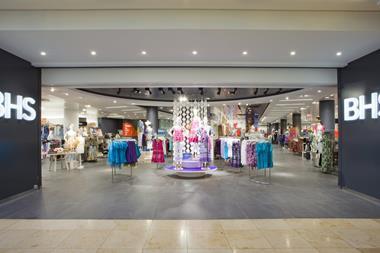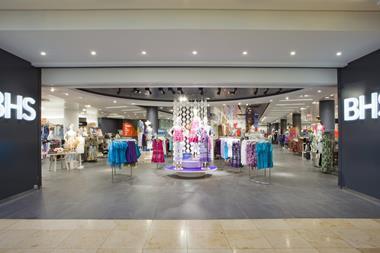When a retailer is struggling, you often hear the chief executive talk about how the company needs to go back to its roots and remember the reason it exists in the first place.

For British Home Stores (BHS), however, that is a problem.
The retailer was founded in Brixton, south London, in 1928 by a group of American entrepreneurs who wanted to create a UK version of Woolworths, which had pioneered the concept of the ‘five and dime’ store in the US.
However, the Woolworths brand disappeared in the US in 1997 and its UK offshoot collapsed in 2008. So the modern-day BHS, fresh from winning support for its company voluntary arrangement (CVA), needs fresh inspiration.
The department store chain, which went into the CVA with 164 stores, faces a vital few months if it is to have a future as long as its past.
It should be said, firstly, that BHS and KPMG deserve credit for their handling of the CVA. Whether you agreed with the company’s demands or not, BHS offered a genuine turnaround proposal, and provided landlords with the power to boot it out of stores if they are not happy with the modified rental agreement. Landlords duly rewarded the company by voting through the CVA. Other struggling retailers should take note.
Hungry for cash
However, BHS’s proposals also laid bare the scale of the problems that the company needs to address. BHS needs to raise £100m to keep on trading and to fund a modernisation programme that involves installing food departments into its shops, simplifying its clothing range and revamping its website.
The company plans to raise this through a £60m loan with Gordon Brothers, selling off the long lease at its flagship Oxford Street store, and releasing cash that is held by suppliers as security for dealing with BHS.
But these deals clearly come at a cost. BHS is pledging assets against the Gordon Brothers loan, while the Oxford Street deal involves it giving up its flagship store in a prime location.
In addition, suppliers are unsettled by the retailer’s attempt to cut the lines of credit it issues. This is security for suppliers that are struggling to get credit insurance on deals with the loss-making chain.
The clothing manufacturer Courtaulds said outside the CVA meeting that it was “concerned about the long-term ability of BHS to pay for orders”.
On top of all this is a pension deficit of £571m and a warning from the Pension Protection Fund (PPF) that it could put BHS into administration if a deal is not reached on how to fund its retirement benefits. This deal will involve the PPF taking control of the pension fund in return for a stake in BHS and a cash injection.
Make no mistake, the PPF is serious about cutting off the business if it means the pension scheme will be better funded. The deciding factor could be the former BHS owner Sir Philip Green, who is in talks with the Pensions Regulator about paying towards the scheme. Green’s contribution could be enough to keep the PPF happy.
Even if BHS does jump these financial hurdles, it still has to find a way of attracting enough shoppers.
Management argues that the business has suffered because it is paying rents significantly ahead of the market, which has led to a lack of investment in its shops and products.
However, in some parts of the UK, rents have not been a problem. In Carlisle, Cumbria, the owner of The Lanes shopping centre and the local council paid more than £5m to BHS for it to leave its premises. Primark is taking BHS’s place, paying significantly more in rent than its rival.
Core market
Nonetheless, BHS believes it has a core market of ‘purposeful mums’ who still want to shop in its stores, with its ranges of homeware and lighting being particularly popular.
The man in charge of attracting these shoppers is chief executive Darren Topp. The seasoned retailer is a safe pair of hands who understands the challenge facing BHS, and just wants to get on with it. However, there are undoubtedly question marks about the experience and credibility of the chain’s owner. Dominic Chappell, who owns 90% of the parent company Retail Acquisitions, has been declared bankrupt twice.
If Chappell can let Topp get on with running with the business and provide him with the funds he has asked for, then BHS has a chance of becoming a solid player in the mid-market.
But any analysis of BHS is full of ‘ifs’. Unfortunately for BHS, its future is still not in its own hands. It’s with the PPF, Green and shoppers. BHS could still end up following in the footsteps of Woolworths, but not in the way its founders had hoped.
Graham Ruddick is senior business reporter at The Guardian






























No comments yet